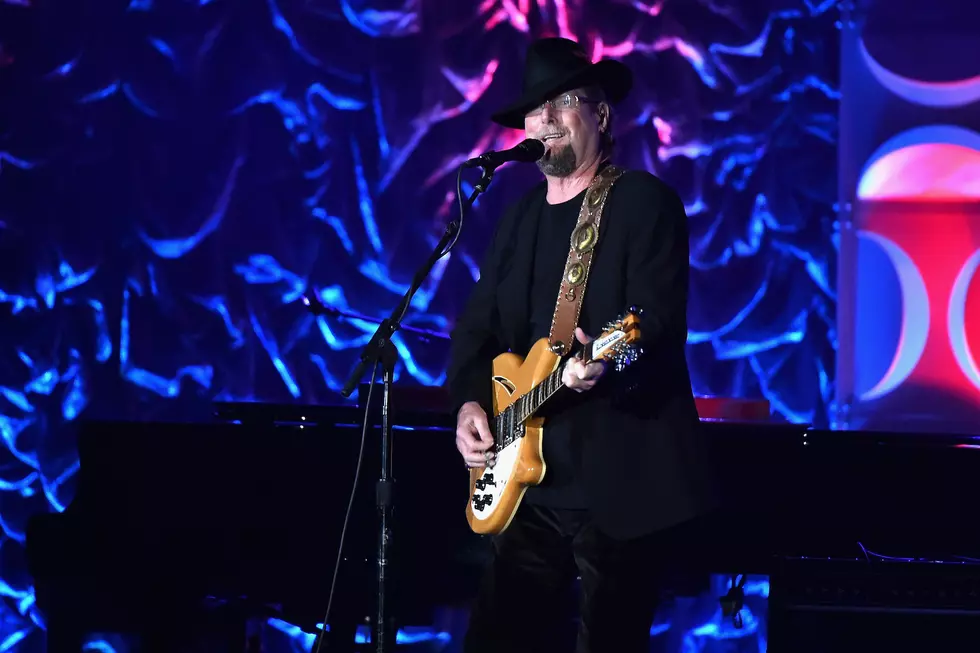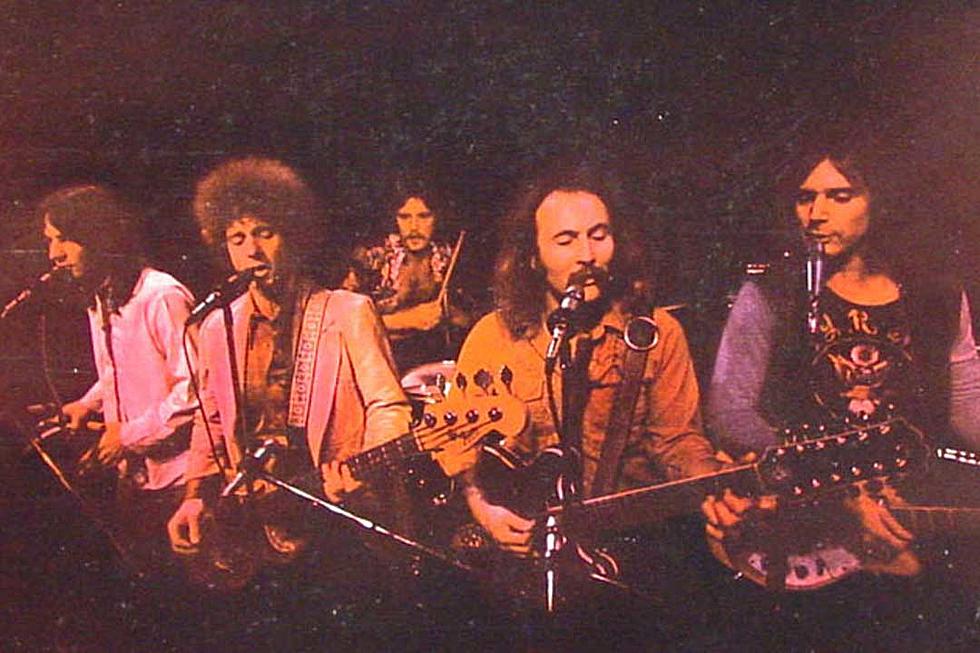
Roger McGuinn Says ‘I Always Wanted to Be a Real Folk Singer’
Roger McGuinn has never been one to fuss much. When he looks back at his six-decade career, it's the simple fact that he's made a living in the music business that makes him the proudest.
"I always felt it was important to be a starving musician," he tells UCR, "to prod you on to getting it working instead of taking a job and doing music on the side."
McGuinn, 80, got it working sometime in 1962, when, after graduating from Chicago's Old Town School of Folk Music, he began playing local coffeehouses and landed a job as a guitarist for Bobby Darin. A year and a half later, he took a job as a staff songwriter at New York City's Brill Building, where Carole King and Gerry Goffin were churning out hits and a steady stream of hit pop music was flowing. McGuinn recording with the likes of Judy Collins and Simon & Garfunkel before relocating to Los Angeles, where he was offered a performance job at the Troubadour. He soon met David Crosby and Gene Clark, with whom he'd form the Byrds. When the trio went to see the Beatles' A Hard Days Night in 1964, they were hooked on the excitement of being rock 'n' roll stars. McGuinn, fascinated with John Lennon and George Harrison's Rickenbacker guitars, traded in a couple of his instruments for a 12-string.
The Byrds experienced a whirlwind next few years, topping the charts and performing overseas before the original quintet splintered. By the time that core group fractured before the '60s ended, the Byrds were practically synonymous with Laurel Canyon's folk-rock scene, thanks to McGuinn's 12-string Rickenbacker and its unmistakable jangle. Bob Dylan became a significant figure in the Byrds' orbit. McGuinn often tells the story about the time Dylan was asked to write a song for the movie Easy Rider, scribbled some lyrics on a napkin and instructed star Peter Fonda to "give this to McGuinn. He'll know what to do with it." McGuinn then penned 1969's "Ballad of Easy Rider."
Listen to the Byrds' 'Ballad of Easy Rider'
Although the Byrds persevered through several decades and incarnations, it was their first few years - their "peak," according to McGuinn - that had the strongest impact. Many of those memories are depicted in the upcoming photo book The Byrds: 1964-1967, which includes approximately 500 photographs: studio shots, alternate album covers and just about everything in between. Revisiting these moments brings out a chuckle from McGuinn. "I didn't remember the photo session with the models," he says. "We did some photo sessions with beauty queens on the beach, things I hadn't seen in awhile. It was kind of a blur back then, everything was happening so quickly."
McGuinn has revisited his history before. Years ago, he put together a memoir that was rejected by the publisher for containing too much religious content. (McGuinn and his wife have been practicing evangelical Christianity since 1978.) He says he has no plans to revisit the project. "I decided I didn't want to," he says, noting that 2014's Stories Songs & Friends includes several memoir-like recollections. Besides, some things are better off in the past, he says. "I really consider that my autobiography," he adds. "And putting it in book form isn't really important to me. Also, when I wrote [the memoir] 30 years ago, I put a lot of stuff in there that I don't want anybody to know."
Also, as successful as the Byrds were, they're not McGuinn's entire story, as he's quick to point out. "I thought the Byrds were a good nine-year detour from my dream of becoming like Pete Seeger - a folk singer or a storyteller like Will Rogers or somebody," he says. "I really always wanted to be a real folk singer and I was always in the peripheral part of folk music as a sideman. ... I was always not considered a real folk singer. So it's like wanting to be a real boy."
McGuinn is now working on a new project that started over 50 years ago. In 1969, he was approached by lyricist Jacques Levy, who'd worked with Dylan on his 1976 album, Desire, and wanted to collaborate with McGuinn on a musical, Gene Tryp, based on Henrik Ibsen’s Peer Gynt. At the time, the rock musical Hair was everywhere. Levy, who had a penchant for cowboys like many children of the '30s, wanted to do something similar, but Western-style. "His loft in the Village had a mural of a cowboy riding into a bar," McGuinn recalls of Levy, who died in 2004. "So it was his idea to take Peer Gynt and turn it into a Western musical. And the Byrds has just done the Sweetheart of the Rodeo, so we thought that was a good combination."
A handful of songs, like "Chestnut Mare" and "Just a Season," appeared on later Byrds albums, and production of Gene Tryp eventually took place at Colgate University in Hamilton, N.Y. "[But] it wasn't up to Broadway-quality," McGuinn admits. "But, you know, we got it done!"
Still, McGuinn has continued workshopping much of the unheard music. The pandemic left him plenty of free time to work at his home studio, playing all the instruments. "I overdub guitars and vocals, and it comes out sounding like a band, more or less," he says. McGuinn doesn't have a release scheduled for the new music yet, but he has other ideas floating around, too, including working with a symphony orchestra.
Listen to the Byrds' 'Chestnut Mare'
In 2018, McGuinn toured with original Byrds member Chris Hillman in celebration of the 50th anniversary of Sweetheart of the Rodeo. Things were a bit fractious with surviving co-founder Crosby at the time and have become even more so since then.
So any chances of a Byrds reunion are slim at this point. "Paul McCartney, when asked to put the Beatles back together, when they were all still alive, said you can't reheat a souffle," he says. "It was something that happened in a special time and place. And those conditions will never happen again."
Besides, he's happy doing his one-man shows, which include stories about touring with Dylan on the Rolling Thunder Revue to how he came to record Tom Petty's "American Girl." After all these years, though, he admits he still gets nervous before taking the stage. "I think it's an edge you need," he says. "If you lose that, you might as well start playing at the Holiday Inn."
Top 100 '60s Rock Albums
More From Ultimate Classic Rock









